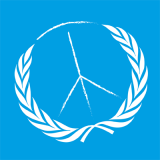Background
For decades, international disarmament topics have been dealt with at the Conference on Disarmament (CD), an international forum established to negotiate multilateral disarmament treaties. The CD consists of 65 member states, holds its meetings three times per year in Geneva, and all its decisions must be adopted by a consensus (i.e. agreed by all the member states). Although several key treaties were negotiated in this forum, including the Chemical Weapons Convention (1993) and the Comprehensive Test Ban Treaty (1996), since 1996 the CD has been unable to undertake any substantive work due to inability to reach consensus on a program of negotiations on nuclear disarmament. Thus, more recent agreements such as the Land Mines Convention, Cluster Munitions Convention and the new Arms Trade Treaty were negotiated in other forums.
The sticking point in the CD is whether to commence nuclear disarmament negotiations on a step-by-step basis, the next step being a treaty to ban the production of fissile (bomb-making) materials, or whether to undertake a more comprehensive nuclear disarmament negotiating process involving security assurances for non-nuclear weapon States, prevention of an arms race in outer space and other nuclear disarmament measures leading to a nuclear weapons free world. So far, consensus on the way forward has not been possible.
Open Ended Working Group (OEWG)
In reaction to the long stalemate of the CD, in December 2012 the United Nations General Assembly (UNGA) adopted a resolution that established a new forum to discuss nuclear disarmament and report back to the UNGA in October 2013 with recommendations on how to take forward multilateral nuclear disarmament negotiations.
Unlike the CD, the new Open Ended Working Group (OEWG) is open to all states and since it doesn’t operate by principles of consensus, it can’t be blocked by any country. This opens the door to a free exploration of disarmament proposals by governments, their direct engagement in developing a roadmap to a nuclear weapons free world, the generation of approaches to overcome blocks to multilateral disarmament negotiations, and the commencement of preparatory work on a nuclear weapons convention or framework of agreements.
The OEWG is chaired by H.E. Ambassador Manuel Dengo of Costa Rica and convened at the UN in Geneva, Switzerland, over the course of 15 days spread over May 14–24, June 27–28, and August 19–30, 2013.
The first sessions of the OEWG, which started in Geneva on May 14, have focused on taking stock of existing obligations and of existing and new proposals for disarmament. Representatives of roughly 70 states, as well as civil society, engaged in discussions that were significantly more interactive than what we usually see at such conferences. A positive atmosphere, willingness to bridge the gaps between various approaches, openness to think out of the box, and wish to look for a common ground, provided a very promising beginning to the OEWG process. However, to make it a real success, we need your help. Please act now to elevate this new process in your capital – encourage your country to participate fully in the OEWG and to actively promote a comprehensive approach to nuclear disarmament.
